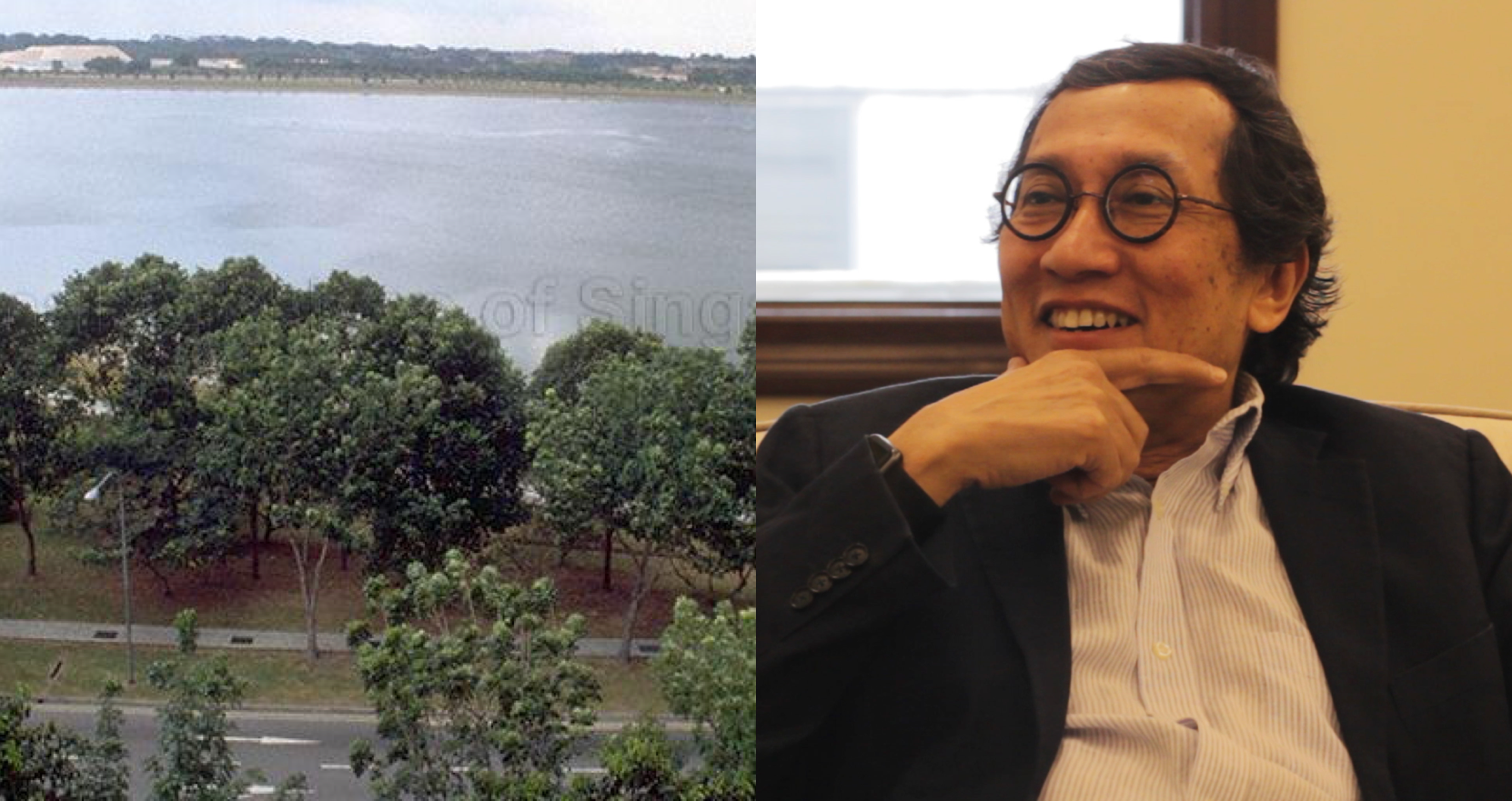Malaysia wants to raise the price of water it sells to Singapore?
It could hurt them more than it would hurt us.
On July 5, Chief Minister Osman Sapian of Johor suggested during a press conference that the price of water sold to Singapore should be raised from the current rate of 3 sen to 50 sen per 1,000 gallons.
This is apparently the same rate at which Johor sells water to Malacca, but it represents a 16-fold increase for Singapore.
Said Osman:
"It's time to increase (the price of raw water). Perhaps we will increase it to the same rate as sold to Malacca (50 sen per 1,000 gallons).
We will review the water price agreements with Singapore to make sure that this can be done. It needs to be discussed more.
I think that if the Johor government wants to raise prices at a reasonable rate, Singapore will accept it because that is our hope."
Too cheap
Osman's statement comes after Prime Minister Mahathir Mohamad said on June 25 that the Malaysian government should renegotiate the terms of the 1962 Water Agreement with Singapore, as it was "too costly".
But Mahathir also said on June 25 during a press conference that it was "not an urgent matter."
Some math involved
In response, veteran diplomat and former ambassador-at-large Bilahari Kausikan posted his thoughts on Facebook about Osman's statement.
He pointed out that instead of taking advantage of Johor, Singapore is actually subsidising the cost of treating water for the Malaysian state.
[related_story]
Bilahari said: "Go calculate the profit for Johor."
So we did. Here's how it works out:
- Singapore buys raw, untreated water from Johor at 3 sen per 1,000 gallons.
- Singapore makes the water drinkable and sells this to Johor at 50 sen per 1,000 gallons.
- BUT it costs Singapore RM2.40 to treat 1,000 gallons in the first place.
- And Johor sells the drinkable water to its own citizens at RM3.95 per 1,000 gallons.
[Editor's note: Bilahari may have meant to say "gallons" instead of "millions of gallons per day (mgd)" in his post, as the 1962 Water Agreement sets the price of 3 sen per 1,000 gallons of raw water and 50 sen per 1,000 gallons of treated water.]
After some quick maths, it turns out that Singapore makes a loss of RM1.93 for every 1,000 gallons of treated water it sells to Johor.
And Johor makes a profit of RM3.48 for every 1,000 gallons of treated water it sells to its own citizens.
So, if anyone's profiting off this deal, it's not Singapore.
Bilahari mentioned that this is perhaps why Malaysia buys more treated water from Singapore than it is entitled to under the agreement.
After all, if a deal doesn't benefit you, why buy more than you need to?
Tit-for-tat
Said Bilahari:
"If Johor raises the price of raw water by 1600%, it is only fair that we should raise the cost of treated water too, no?
Do the math. It is not difficult to figure out what it would cost Malaysia if we should raise the cost of treated water we sell to Johor by the same percentage.
Does the Chief Minister really want this?"
Let's find out what would happen if Johor does raise the price of raw water 16-fold, and Singapore does the same thing for treated water.
- Johor sells untreated water to Singapore at the new price of 50 sen per 1,000 gallons.
- It still costs Singapore RM2.40 to treat 1,000 gallons of water to make it drinkable.
- But now Singapore sells treated water to Johor at the new price of RM8 per 1,000 gallons.
- Johor then sells the treated water to its citizens at the same price of RM3.95.
In this scenario, Singapore now makes a profit of RM5.10 for every 1,000 gallons of treated water it sells.
And Johor makes a loss of RM3.55 for every 1,000 gallons of treated water it sells to its own citizens.
Therefore Osman Sapian has two options:
- Lose money every time you sell treated water to Johoreans.
- Raise the price of treated water sold to Johoreans and risk pissing them off.
Neither seems appealing if you're a Chief Minister in charge of Johor.
Political ploy
Bilahari adds that Malaysia declined to review the water prices when the two agreements reached their 25th year in 1986 and 1987.
And he suggests that the Malaysian politicians are indeed aware of the numbers involved, and that talk about raising prices could be politically-motivated:
"However, I don’t think the Chief Minister is really interested in facts.
As I have previously written, I think this is a political ploy to get Singaporeans to pressure our government. And it is a distraction from their own problems.
I don’t think most Singaporeans will fall for it once they know the facts.
Except, of course, for the usual suspects who cannot resist the temptation to use foreign pressure to try and advance their own agendas.
Remember, this is an old song. And they will play it again and again in the coming months."
You can read Bilahari's Facebook post here:
And here are our previous stories on this lively exchange.Related stories:
Top image adapted from pics by Goh Wei Choon and Ministry of Information and the Arts Collection, courtesy of National Archives of Singapore.
If you like what you read, follow us on Facebook, Instagram, Twitter and Telegram to get the latest updates.
